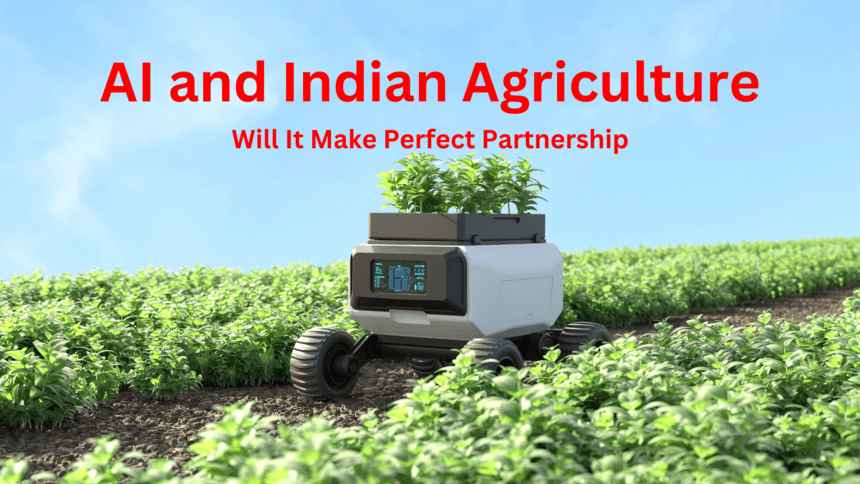Introduction
In the realm of global agriculture, India stands at a pivotal juncture poised for a profound transformation driven by Artificial Intelligence (AI). This integration promises not only to bolster productivity but also to ensure sustainable agricultural practices. Given that agriculture forms the backbone of India’s economy, providing livelihoods to millions, the advent of AI in Indian Agriculture marks a crucial advancement towards overcoming persistent challenges and optimizing resource management.
Historical Context of Agriculture in India
Agriculture in India boasts a rich heritage deeply entrenched in traditional methods. Despite the landmark Green Revolution of the 1960s, which significantly boosted yields through modern agricultural techniques and technologies, challenges such as unpredictable weather patterns, pest outbreaks, and limited resources continue to impact agricultural productivity. The introduction of AI in Indian Agriculture represents a contemporary solution to these age-old challenges, offering innovative approaches to enhance efficiency and sustainability.
The Emergence of AI in Agriculture
The incorporation of AI in Indian Agriculture has emerged as a recent phenomenon propelled by rapid technological advancements and increased accessibility. AI systems harness vast datasets to generate actionable insights and facilitate decision-making processes that were previously unimaginable. From predictive analytics to autonomous machinery, AI stands poised to revolutionize agricultural practices in India, ushering in a new era of precision and efficiency.
Key AI Technologies Transforming Indian Agriculture
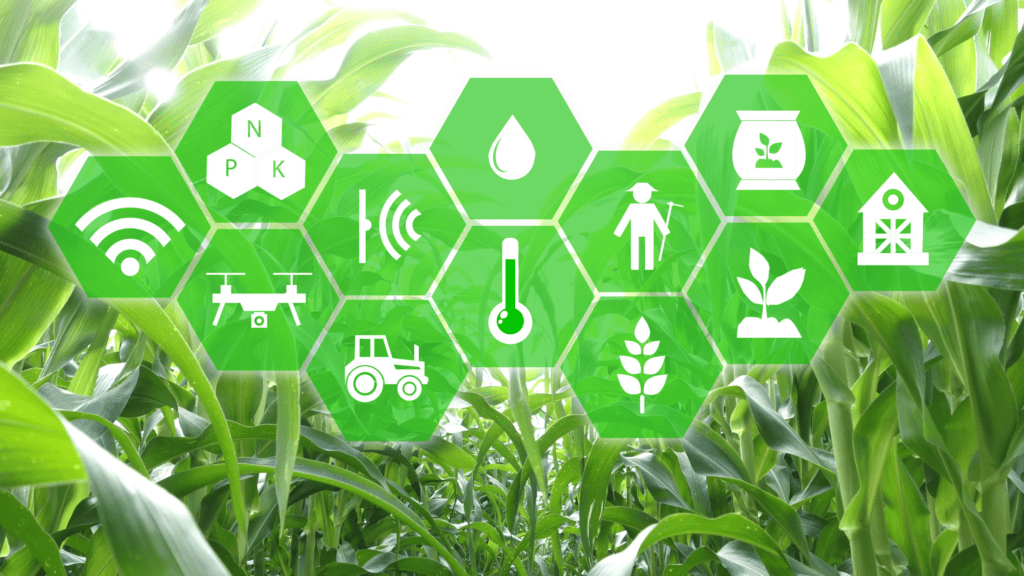
Machine Learning
At the forefront technologies of AI in Indian Agriculture is machine learning, which empowers systems to analyze intricate agricultural data sets. By identifying patterns and correlations, machine learning algorithms enhance predictive capabilities, aiding in tasks such as yield forecasting, disease detection, and soil health assessment. This data-driven approach enables farmers to make informed decisions, optimize inputs, and maximize crop yields effectively.
Predictive Analytics
AI-driven predictive analytics leverages historical and real-time data to forecast future agricultural trends with precision. In the context of Indian Agriculture, predictive analytics enables farmers to anticipate market demands, optimize planting schedules, and mitigate risks associated with weather fluctuations and market volatility. By providing insights into optimal crop varieties and cultivation practices, predictive analytics empowers farmers to optimize resource allocation and enhance overall productivity.
Drones and Satellite Imagery
Drones and satellite imagery have revolutionized agricultural monitoring and management practices in India. These technologies provide high-resolution aerial images that facilitate detailed assessments of crop health, soil conditions, and water distribution across vast agricultural landscapes. By enabling early detection of pests, diseases, and nutrient deficiencies, drones and satellite imagery empower farmers to implement targeted interventions, thereby optimizing crop management practices and minimizing resource wastage.
Internet of Things (IoT)
The Internet of Things (IoT) plays a pivotal role in AI-driven agriculture by facilitating real-time data collection and communication between interconnected devices. IoT sensors deployed in Indian farms monitor crucial parameters such as soil moisture levels, temperature, and humidity, providing farmers with actionable insights for precision agriculture. This seamless exchange of data enables timely decision-making, efficient resource management, and the implementation of sustainable farming practices across diverse agro-climatic regions in India.
Enhancing Crop Yields with AI
AI technologies are instrumental in enhancing crop yields in Indian Agriculture by optimizing agricultural practices and minimizing inefficiencies. Through advanced data analytics, AI systems analyze factors such as soil composition, weather patterns, and historical crop performance to recommend tailored solutions for crop nutrition, irrigation scheduling, and pest management. By adopting AI-powered insights, Indian farmers can achieve higher crop yields, improve farm profitability, and contribute to food security amidst growing population demands.
Precision Farming: The New Frontier
Precision farming represents a paradigm shift in Indian Agriculture, enabled by AI technologies that cater to specific micro-environmental conditions within agricultural fields. By deploying precision agriculture techniques, such as variable rate application of fertilizers and pesticides, farmers can optimize input usage while minimizing environmental impact. AI-driven precision farming solutions enhance soil fertility, crop health, and overall yield potential, thereby fostering sustainable agricultural practices across diverse farming landscapes in India.
AI in Pest and Disease Management
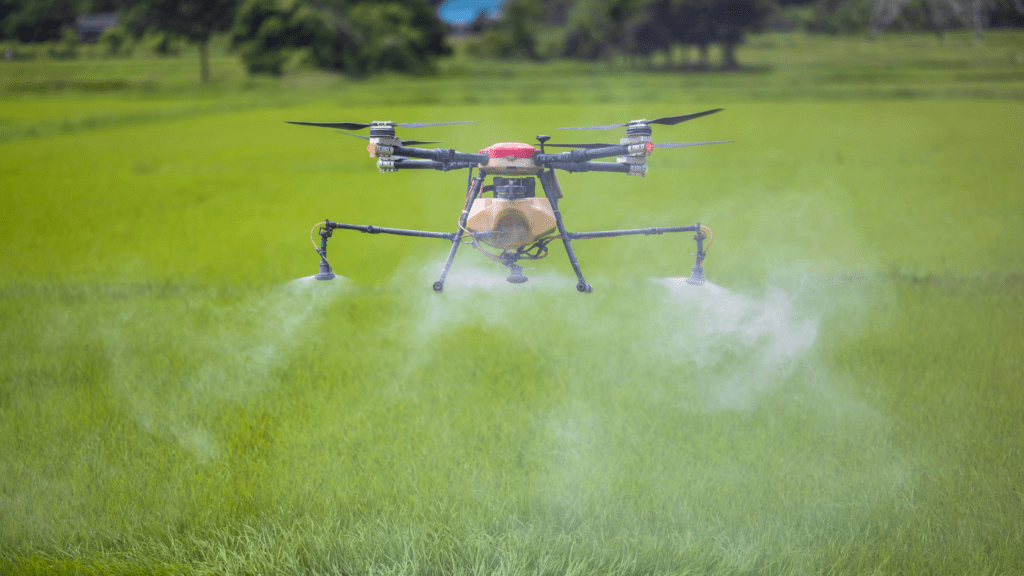
AI applications in pest and disease management revolutionize agricultural sustainability by facilitating early detection and targeted intervention strategies. AI-powered image recognition technologies identify signs of pest infestations and crop diseases based on visual cues captured through drones or cameras. By enabling timely responses, AI systems recommend appropriate treatment measures, reducing reliance on chemical pesticides and promoting eco-friendly farming practices. In Indian Agriculture, AI-driven pest and disease management solutions safeguard crop health, minimize yield losses, and support the transition towards integrated pest management (IPM) practices.
Smart Irrigation Systems
AI-powered smart irrigation systems optimize water usage in Indian Agriculture by delivering precise amounts of water based on real-time environmental data and crop requirements. IoT sensors and AI algorithms monitor soil moisture levels, weather forecasts, and crop water uptake rates to automate irrigation scheduling and minimize water wastage. By ensuring efficient water management, smart irrigation systems enhance crop resilience to drought conditions, improve water use efficiency, and contribute to sustainable water resource management practices across India’s diverse agricultural regions.
Soil Health Monitoring and Management
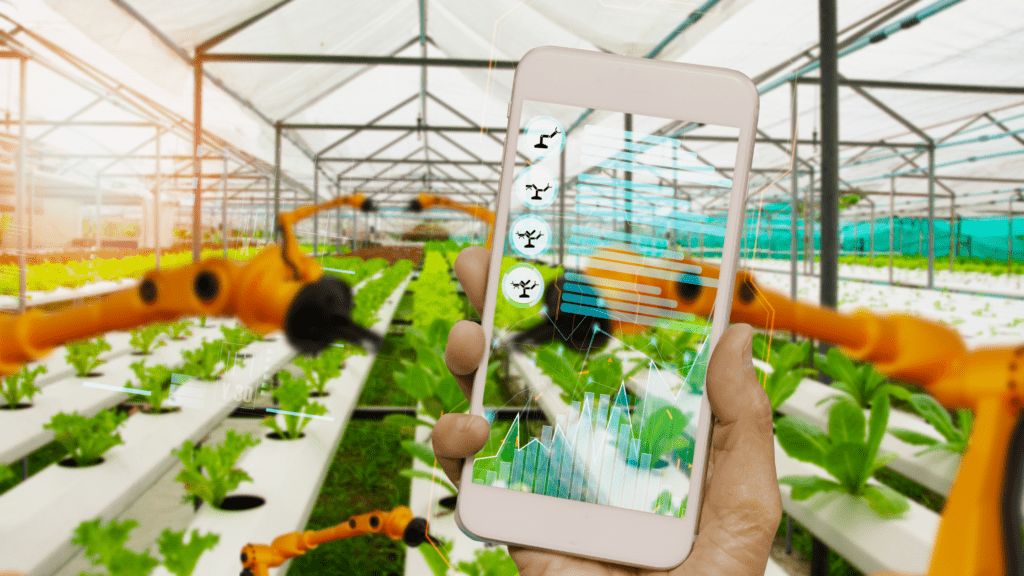
AI-driven soil health monitoring tools provide comprehensive insights into soil nutrient levels, pH balance, and organic matter content, crucial for sustainable soil management in Indian Agriculture. By analyzing soil data collected through IoT sensors and remote sensing technologies, AI systems generate soil fertility maps and recommend customized nutrient management plans. These insights empower farmers to adopt precision farming practices, optimize fertilizer application rates, and improve soil health over time. AI-enabled soil health management solutions promote sustainable agricultural practices, enhance crop productivity, and mitigate environmental degradation in India’s agricultural landscapes.
AI-Powered Supply Chain Optimization
Efficient supply chain management is integral to enhancing market access and profitability for Indian farmers. AI technologies optimize agricultural supply chains by predicting market demand, streamlining logistics, and minimizing post-harvest losses. By analyzing historical sales data, weather forecasts, and transportation logistics, AI-powered supply chain optimization solutions enable timely delivery of agricultural produce to markets and reduce wastage along the distribution chain. These advancements in supply chain efficiency improve farm incomes, strengthen market linkages, and support India’s agrarian economy through enhanced market access and profitability opportunities.
Reducing Food Waste with AI
Food waste reduction is a critical sustainability goal in Indian Agriculture, supported by AI-driven solutions that optimize food supply chains and minimize losses. AI algorithms track and analyze food movement from farm to consumer, identifying inefficiencies and opportunities for waste reduction. By implementing predictive analytics and smart inventory management systems, AI technologies enhance food distribution efficiency, reduce spoilage, and ensure surplus food reaches vulnerable populations. These initiatives promote food security, mitigate environmental impacts, and optimize resource utilization across India’s diverse agricultural value chains.
Government Initiatives and Support
Government initiatives play a pivotal role in promoting the adoption and innovation of AI in Indian Agriculture through policy support, financial incentives, and capacity-building programs. In India, initiatives such as the National Mission on Sustainable Agriculture (NMSA) and the Digital India program encourage the adoption of AI technologies among farmers. Financial subsidies, research grants, and training programs empower farmers to embrace AI-driven agricultural solutions, fostering technology-driven innovation and sustainable development in the sector. Government partnerships with technology providers and research institutions facilitate knowledge dissemination, skill enhancement, and collaborative research initiatives to address agricultural challenges and promote AI adoption across India’s farming communities.
Challenges and Barriers to AI Adoption
Despite the transformative potential of AI in Indian Agriculture, several challenges hinder widespread adoption and implementation. High initial investment costs, limited digital infrastructure, and technological literacy among farmers pose significant barriers to AI adoption. Resistance to change, concerns over data privacy, and the need for tailored AI solutions further complicate adoption efforts in India’s diverse agricultural landscape. Addressing these challenges requires concerted efforts from policymakers, technology developers, and agricultural stakeholders to develop inclusive strategies, build digital infrastructure, and enhance technical support for AI adoption. By overcoming these barriers, India can unlock the full potential of AI technologies to modernize agriculture, improve productivity, and ensure sustainable food security for future generations.
Case Studies: Successful AI Implementation
Numerous case studies illustrate successful AI implementations across different agricultural sectors in India, highlighting the transformative impact of AI technologies on farm productivity, resource efficiency, and sustainability. For instance, AI-driven precision agriculture solutions have enabled farmers to optimize irrigation schedules, improve soil fertility management, and increase crop yields in water-stressed regions. Similarly, AI-powered pest management systems have facilitated early detection of pest outbreaks, reducing pesticide usage and minimizing crop losses. These case studies demonstrate the scalability and adaptability of AI technologies in addressing specific challenges faced by Indian farmers, from smallholder farms to large-scale agricultural enterprises. By showcasing real-world applications and measurable outcomes, these case studies inspire confidence in AI adoption and encourage further innovation in India’s agricultural sector.
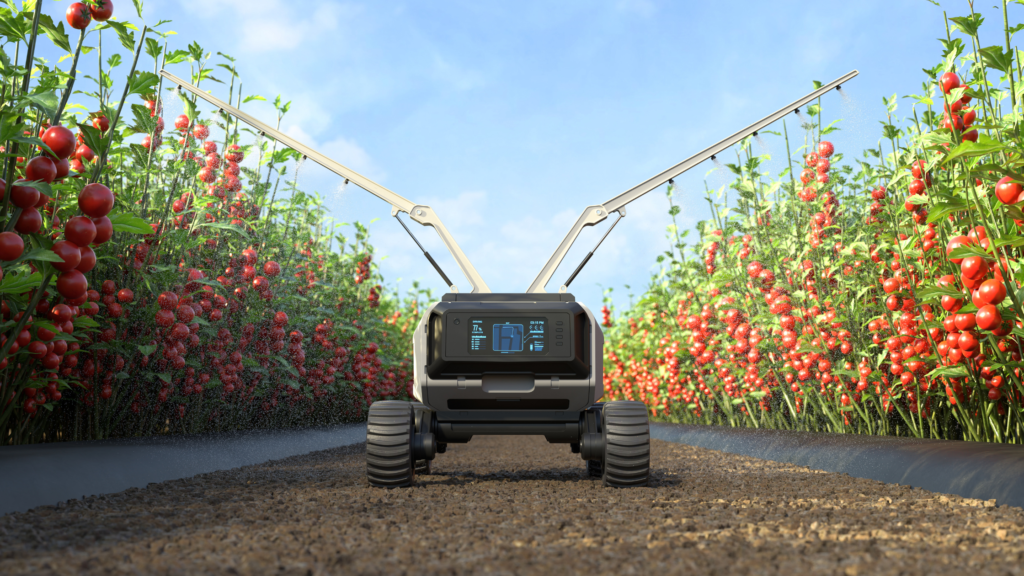
The Future of AI in Indian Agriculture
Looking ahead, the future of AI in Indian Agriculture holds immense promise for driving sustainable development, enhancing farm productivity, and ensuring food security amid evolving climate and market dynamics. Continued advancements in AI technologies, such as machine learning, IoT, and remote sensing, will enable farmers to make data-driven decisions, optimize resource use, and mitigate agricultural risks effectively. AI-powered innovations in crop breeding, soil health management, and climate-resilient farming practices will support India’s agricultural transformation towards a more resilient, efficient, and sustainable future. By fostering collaboration between government, industry, and research institutions, India can harness the transformative potential of AI to empower farmers, strengthen rural livelihoods, and achieve inclusive agricultural growth in the digital age.
In conclusion, AI in Indian Agriculture represents a transformative force that promises to revolutionize farming practices, enhance productivity, and promote sustainable development across India’s diverse agricultural landscape. By leveraging AI technologies, farmers can overcome existing challenges, optimize resource management, and contribute to global food security goals. As India embraces AI-driven innovations in agriculture, the country stands poised to lead the global agricultural revolution, ensuring a smarter, more resilient future for generations to come.
Reference Books for AI in Indian Agriculture
Book 1: Technological Advancement In Indian Agriculture
Book 2: Modernizing Indian Agriculture in 21st Century: Challenges, Opportunities and Strategies
For more content follow Humstory






